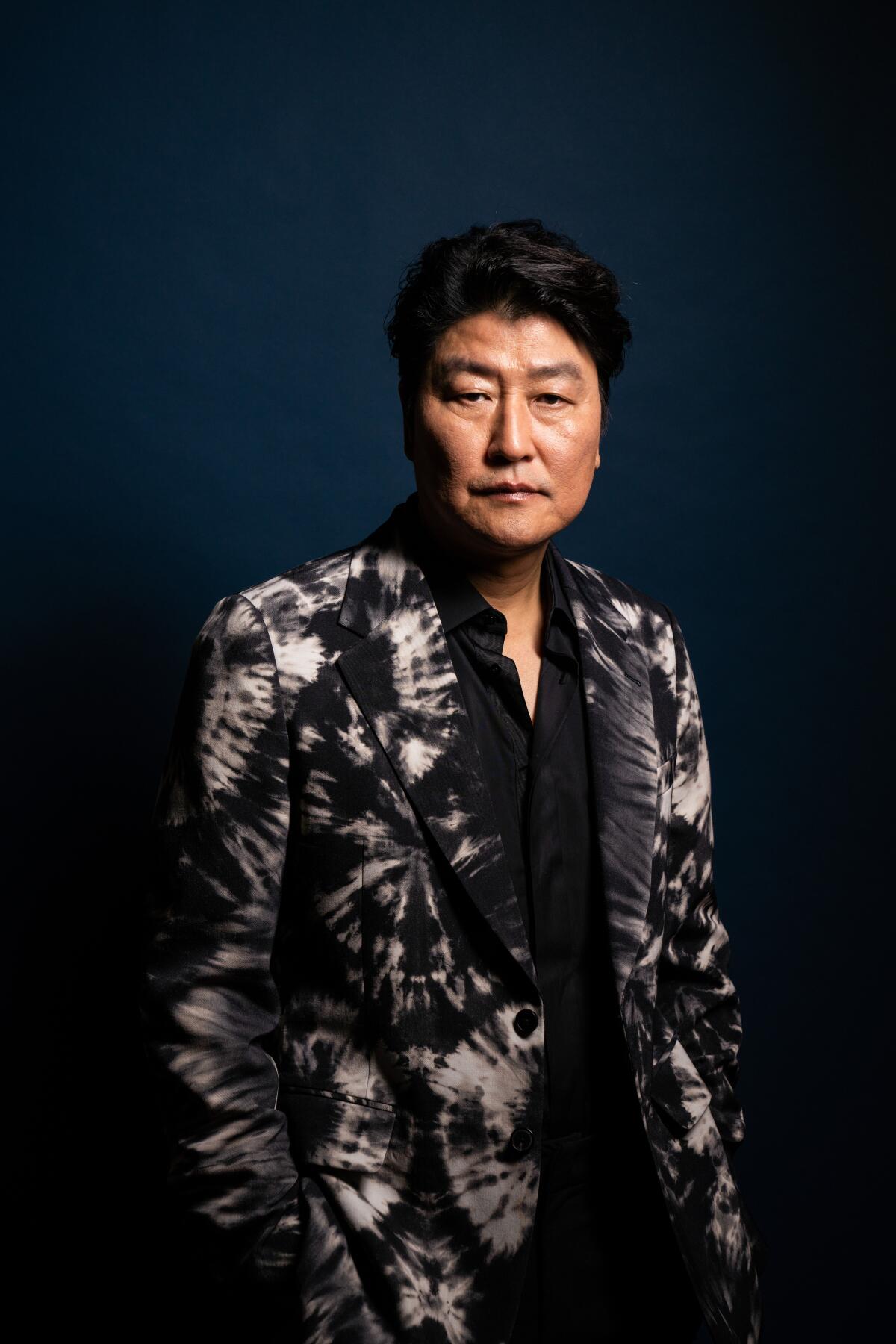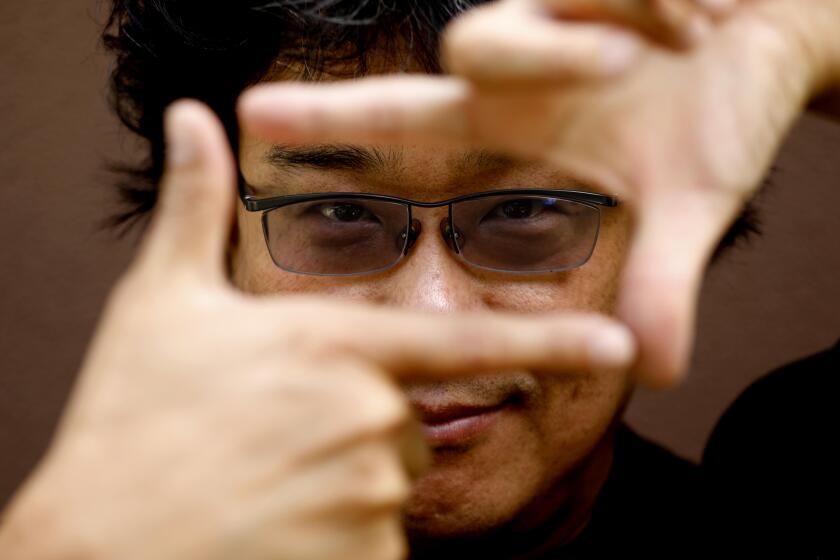Song Kang Ho finds his ‘Parasite’ dad symbolic of those suffering in the class divide

If anybody passed out Movie Father of the Year awards, Song Kang Ho’s performance as the shifty Kim family patriarch in “Parasite” would surely earn a nod. As it is, Song has created a big-screen dad for the ages in South Korean auteur Bong Joon Ho’s comedy/drama/satire/thriller/bloodbath. The Oscar-shortlisted Golden Globe winner marks Song’s fourth collaboration with Bong, including 2013’s similarly class-conscious sci-fi drama “Snowpiercer.”
Song spent a decade on stage before getting into film at age 30, where he has played the action hero (“The Foul King”), the obsessed father (Choon Park Wo’s “Sympathy for Mr. Vengeance”) and the hardened criminal (“No. 3”). In “Parasite,” he brings all of those colors to bear in the role of Kim Ki-Taek, the once-ambitious, now-unemployed head of the impoverished Kim clan. By turns aimless, sly and bitter, Mr. Kim conspires with son Ki-Woo (Choi Woo Shik), daughter Ki-Jung (Park So Dam) and wife Chung-Sook (Chang Hyae Jin) to take over the lives of their rich employers, the Park family.
Noah Baumbach, Greta Gerwig, Marielle Heller, Bong Joon Ho, Todd Phillips and Lulu Wang share filmmaking tips, inspirations — and one big secret that’s still being kept.
Visiting L.A. for a few weeks, Song and his interpreter sequestered themselves in a booth at a Beverly Hills Hotel café. Over a cup of coffee, the soon-to-be 50-year-old “Parasite” star laid out the emotional architecture of his remarkable Mr. Kim.
As “Parasite” shifts tone from dark comedy to thriller to bleak tragedy, your character Kim Ki Taek undergoes extraordinary transformations. How did you get under the skin of this character?
Ki-Taek may seem kind of extraordinary, but I would argue that he’s really more ordinary, in the sense that he’s somewhat of a next-door neighbor and maybe seems ineffectual. But director Bong and I don’t have deep discussions when we go into a project, so we didn’t really discuss how to attack Ki-Taek’s character. And I didn’t really draw inspiration from any people I know in real life because, to be honest, Ki-Taek is more of a metaphor, a symbolic character.
Bong Joon Ho inspired a beer, Bong Joon-hops. That’s better than any award, but his movie, “Parasite,” deserves plenty of honors this season.
The Kim family, living together in cramped quarters, has great chemistry and feels very much like a real family. Did you spend time getting to know your castmates before production began?
We didn’t really sit down and discuss any of that [chemistry] before we started shooting on Day One. Of course, we had a table read beforehand, but other than that we didn’t have any rehearsals per se.
In “Parasite” at the homeless shelter, your Ki-Taek says, “No plan is the best plan.” How did your character get to that point in his life?
That’s something you wouldn’t normally say to your own son. But it shows that Ki-Taek, despite all of his efforts throughout his life, has come to be in this situation because of the very scary reality we live with, under capitalism. Sometimes you don’t get to the place where you’d hoped to be when you were younger. That was what I was reflecting on when I approached the “no-plan” scene.
Unlike your “no-plan” character, Bong Joon Ho is said to be meticulous in planning out the details of his movies. With “Parasite” being your fourth movie together, what’s it like being directed by him?
It’s thrilling but at the same time agonizing. I always expect the project will turn out great. However, to carry out my assignment and meet director Bong’s expectation, I have to put out my very best effort to address every detail that he hands out. So there’s always those two sides of the coin when you work with Bong Joon Ho: great and agonizing.
Posing as the chauffeur, Ki-Taek has to hide his resentment when wealthy Mr. Park says poor people have a certain smell and compares them to cockroaches.
When you don’t have money because you’re struggling financially — that you can sort of take. However, when he talks about how you smell and cockroaches, now you’re going to a place where you really shouldn’t go.
Eventually, Ki-Taek snaps. How did you channel all of his rage and sadness?
The irony of the life we live is that we struggle so hard to move up the ladder, but as you see in the movie, Ki-Taek descends to this place at the end. That is exactly, I think, how our lives are.
More to Read
Only good movies
Get the Indie Focus newsletter, Mark Olsen's weekly guide to the world of cinema.
You may occasionally receive promotional content from the Los Angeles Times.







